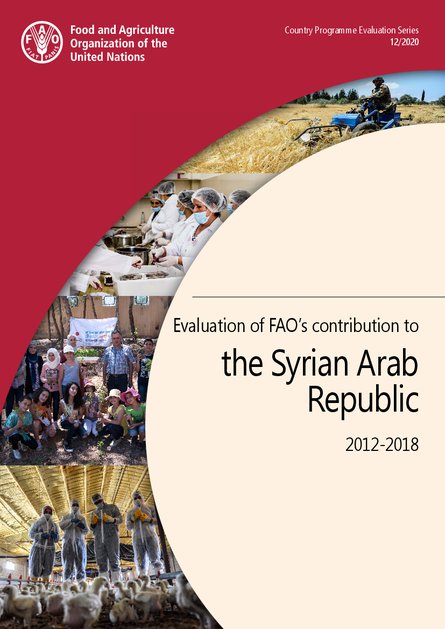
The Syrian crisis has caused intense and sustained levels of violence in the country, which included large-scale destruction of agricultural infrastructure and disruption of all components of the food system. A total of 9.3 million people in the country are facing severe acute food insecurity. During the period subject to evaluation (2012-2018), FAO interventions targeted displaced and hosting households affected by the conflict across the country. Activities were initially carried out in Government controlled areas and subsequently conducted through cross-border operations as part of the Whole of Syria (WoS) approach.
Despite adverse conditions, FAO staff were able to create a portfolio of context-relevant activities offering concrete opportunities for stable sources of income, as well as support relating to input distribution (seeds and tools), livelihoods, value chains and infrastructure rehabilitation. Coordination with the directorates of agriculture and civil society organisations, including Syrian NGOs and Water Users Associations, played an effective role in the delivery of assistance. However, the organisation’s emergency response could have been more effective by more properly considering the regional dimension of the crisis, improved targeting, and prioritization, including coordination of activities across agencies. FAO leadership should continue focusing on and restoring rural livelihoods while promoting good governance of the natural resources and environment, prioritising its technical advisory function.